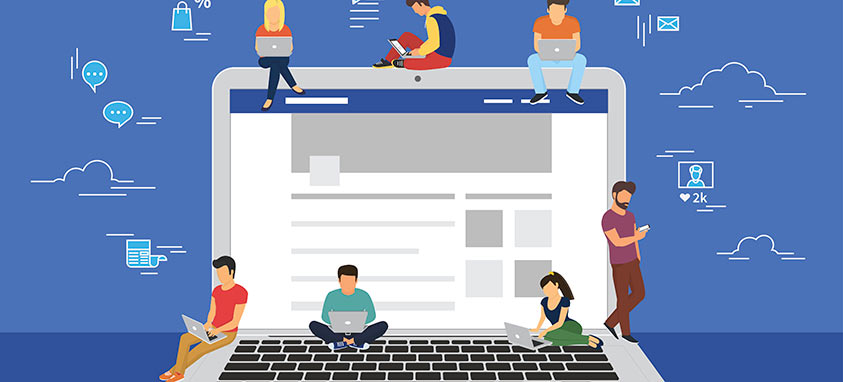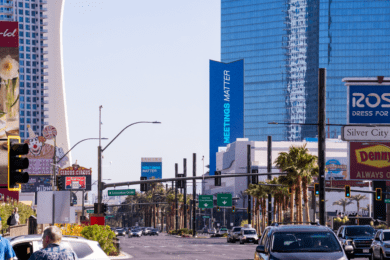Facebook’s popularity has officially exploded. Well it’s been exploding year-over-year since its launch in 2004, but the social media mogul has just reached new heights. When Facebook released its statistics in May, the number of monthly active users was 1.94 billion. On June 27 that number hit a satisfying 2 billion. Every savvy meeting and event planner knows Facebook’s impact on the industry. So why not celebrate the 2 billion mark by recalling all of the daily wonders Facebook makes possible? Here’s what Facebook does for corporate meeting planners:
1. Solidifies Our Community
Facebook was created with the mission of networking, and this holds true for any business on the platform. Facebook groups are the ideal place for sharing useful resources, educating and collaborating. Plus, it’s a much better alternative to inconvenient or outdated methods of collaborating, such as conference calls and email chains. Not to mention the fact that people love engaging on the platform.
“Each day, more than 175 million people share a Love reaction, and on average, over 800 million people like something on Facebook,” Facebook product manager Guillermo Spiller said in a press release. “More than 1 billion people use Groups every month.”
Once your brand has entered the virtual community, there are many ways to accumulate support. Whether you’re seeking job hires, sponsorship opportunities, advice or publicity, casting out a line on Facebook is often helpful. Hashtags have been adopted by Facebook to support this function as well.
2. Encourages Attendee Turnout
Of course, attendee turnout is directly correlated to exposure, in terms of quality and quantity. On Facebook, getting your message to your audience is easily achievable. An average of five new Facebook profiles are created every second—yes, second—so no matter what demographics you want to reach, you’ll probably find them on Facebook. Additionally, Facebook provides multiple ways of publicizing an event. There are paid posts, advertisements, event pages, message invitations, and in-group and brand page posting. Automatic follow-ups are integrated into many of these features, so potential attendees get notified of any changes along the way. Users can even see the event location on a map and browse the confirmed attendee list—both of which can bolster attendance.
3. Builds Brands
Facebook is well aware of its capacity for building a brand’s image. The site provides multiple avenues for businesses to showcase character, authority, success and connections. For example, it’s an essential social network for blog posts to be promoted and circulated. Planners can also take advantage of feedback. In general, users are more candid and outspoken on Facebook than in person or through email. When there’s negative feedback, brands may demonstrate their ability to respond by acknowledging it and enacting a positive change.
Facebook constantly showcases its intelligence and dating gathering abilities with banner ads, which can also be beneficial to your brand. The platform generates feeds eerily catered to our interests. So, corporate meeting planners who take advantage of Facebook’s ad powers can enjoy getting exposure to the right crowd.
4. Shares Real-Time Action
Facebook has been evolving to become a more present reflection of reality. In particular, live streaming is developing as a key feature. Event organizers are beginning to use Facebook Live to give interested parties a look inside an event, hopefully spurring them to attend at a future date. Other features also let planners stay up-to-date with the latest trends. For instance, event coverage on Facebook can extend to posting photo and video coverage with relevant tags and location markers. Location check-ins can even spur interaction, and in some cases a real-life meet-up.
5. Cultivates Valuable Relationships
Facebook isn’t only about catering to an audience. It’s also a legitimate way to connect with partners. For planners this means scoping out and connecting with potential vendors and sponsors. A successful brand page can even incentivize partnerships. The first thing planners can do is assess a company’s image and professionalism. How are their ratings and reviews? What types of posts and images are they sharing? If a planner likes what she sees, she can then reach out to the company on the platform. Another option is to seek out recommendations from mutual connections.




